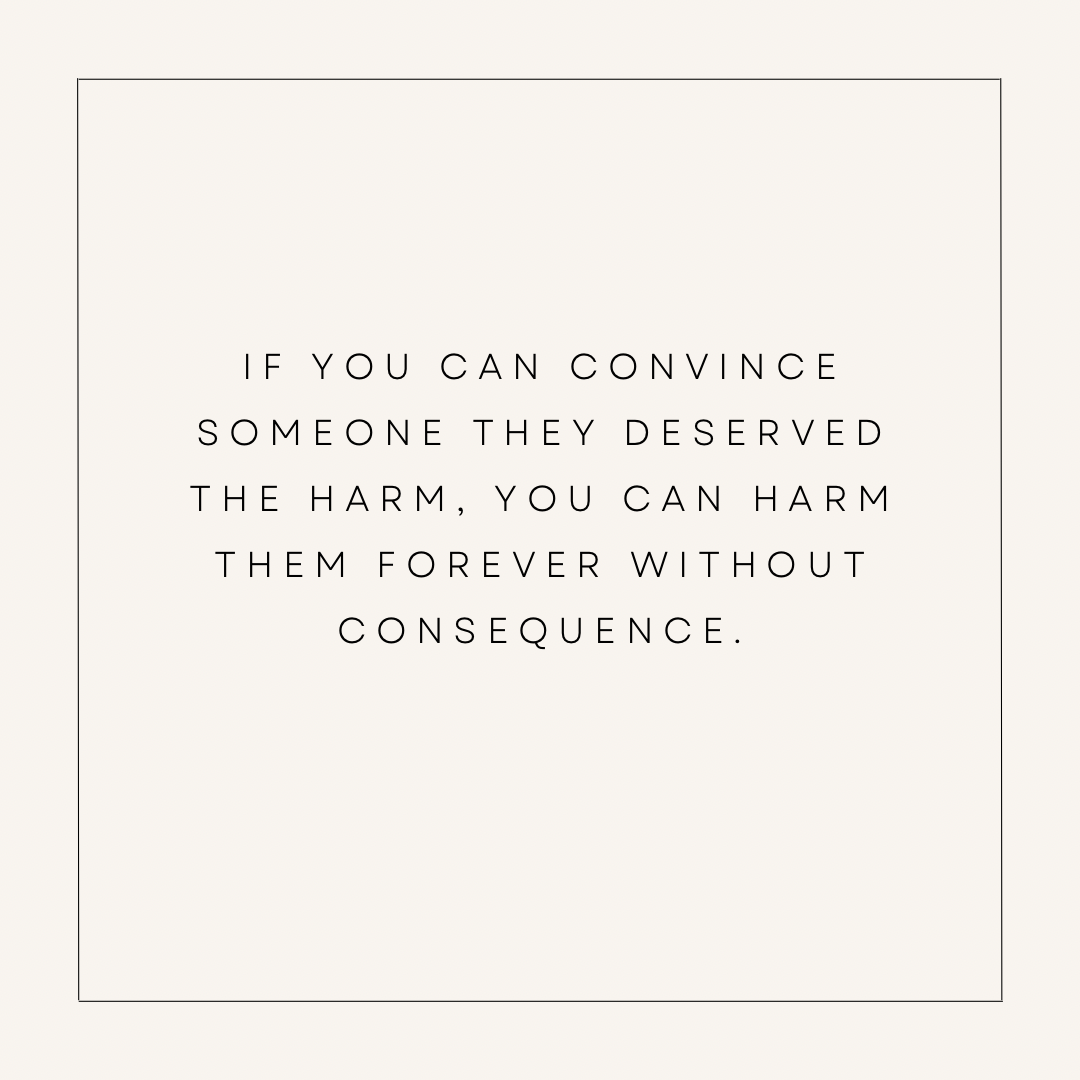The Distortion:
“If you’re hurting, it’s because you’re weak or defective—not because I hurt you.”
So when someone like this does cause harm:
- They don’t see themselves as responsible.
- They explain your pain as evidence that you’re fundamentally flawed.
- And your reaction (tears, anger, collapse, retreat) only confirms that view.
The Logic Loop That Protects Their Conscience:
- “Struggle = weakness.”
If you’re suffering, it’s not because life is hard or you were mistreated—it’s because you’re not strong enough. - “Causing struggle doesn’t matter if the person deserves it.”
If they can position you as fundamentally broken, sensitive, or “too much,” then they can disown any guilt for harming you. - “My ease = evidence of my superiority.”
Their relative calm, luck, or detachment isn’t coincidence—it’s used to prove that they’re better, more evolved, or more capable. - “I’m justified in distancing or controlling you.”
Because you are now the ‘problem,’ they get to treat you with disdain, control, or neglect—and still feel righteous or morally clean.
Why This Is So Devastating:
- You can’t access care from them through vulnerability—it triggers contempt.
- If you try to explain or defend yourself, they just gather more data to reinforce the narrative of your defectiveness.
- They may cause a collapse, then point to the collapse as proof they were right to do so.
- Your suffering doesn’t call them into compassion—it becomes their alibi.
A Pattern I’ve Been Working to Name
Some people cause actual harm—not just discomfort, but real harm—and then step back, noting the fallout from a distance. When the hurt surfaces, they label the person in pain as too sensitive, unstable, or difficult. The distress gets rebranded—not as a response to injury, but as evidence that the wounded one was already flawed.
It’s a calculated move: shake the ground beneath someone, then point to their struggle to stand as proof they were never steady to begin with.
Because for some, appearing indisputably right and unshakably strong sits at the very top of the priority list. That image must be protected—no matter what. Their will, their ego, their narrative must remain intact, even if it costs someone else their dignity, safety, or reality.
And when someone stumbles in the aftermath, it doesn’t inspire care or repair. It affirms the story they need to believe: that the suffering isn’t the result of harm—it’s proof that the person deserved it.
It’s not just avoidance. It’s a system. One designed to preserve power and control, even if it means rewriting harm as hysteria, and injury as evidence of weakness.
And Here’s the Twist:
So, they’ve built this whole self-protection strategy around being untouchable. So to acknowledge your pain as valid would mean:
- Admitting they may have done harm.
- Accepting that they too are vulnerable.
- Letting go of control.
And that’s intolerable for them.



